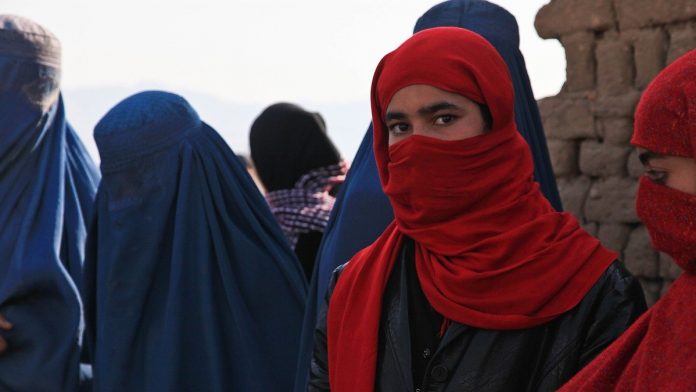
The Taliban have said they will rule Afghanistan according to a strict interpretation of Islam's Sharia legal system.
The group claimed victory after capturing the capital, Kabul. With this, the presence of US-led coalition forces in the country has ended after almost two decades.
What is happening in Afghanistan?
In the first press briefing called after taking control of the country, a Taliban spokesman said issues such as the media and women's rights would be dealt with "under the framework of Islamic law". However, the Taliban did not yet say what this would mean in practice.
Nobel Peace Prize laureate Malala Yousafzai, who was shot at the age of 15 by the Taliban for advocating for girls' education in Pakistan, has warned that the Taliban's interpretation of Sharia law is dangerous to the safety of women and girls in Afghanistan. Might be possible.
Malala told the BBC: "I had the opportunity to talk to some activists in Afghanistan, including women's rights activists. They are not confident about their future life."
"Many of them are remembering what happened in the country between 1996-2001 and are very concerned about their safety, their rights, and their right to go to school," he said.
Earlier when the Taliban were in power, women were not allowed to work or get an education. From the age of eight, girls had to wear the burqa. Not only this, women were allowed to go out only if they had a male relative. Women were publicly flogged for disobeying these rules.
What is Sharia?
Sharia law is the legal system of Islam. It has been prepared by combining the most important book of Islam, the Qur'an, and the decisions of Islamic scholars, ie fatwas.
The literal meaning of Sharia is "a clear and orderly way of water".
Sharia law tells the way of life. All Muslims are expected to follow it. In this, instructions have been given to pray, fast, and donate to the poor.
Its purpose is to help Muslims understand how to live every aspect of their lives according to the will of God.
What does this mean in practice?
Sharia gives the order to every aspect of a Muslim's daily life.
For example, a preoccupied Muslim may turn to a Sharia scholar for advice after being called to a pub by his colleagues after work to determine whether to behave within the legal framework of his religion.
A Muslim can also turn to Sharia law for guidance in other areas of daily life, such as family law, finances, and business.
What are some harsh punishments of Sharia?
Sharia law divides crimes into two general categories. First, 'had', which are serious offenses for which offenses have been framed, and second, 'tazir' is the offense. Its punishment is left to the discretion of the judge.
Theft offenses include extreme crimes. For this, punishment can be given by cutting off the hand of the offender. On the other hand, committing adultery can be punished by stoning to death.
Some Islamic organizations argue that its rules provide for several safeguards when seeking punishment for 'extreme' offenses. For this, a lot of concrete evidence is needed before the punishment can be fixed.
The United Nations has opposed the death penalty by stoning. It says: "This punishment prescribes torture or other cruel, inhuman or degrading punishment. It is therefore expressly prohibited."
However, not all Muslim countries give such punishment for extreme crimes. According to the surveys, the opinion of Muslims is very divided regarding the harsh punishment for such crimes.
Can I be hanged for conversion?
Leaving religion is a matter of great controversy among Muslims. Experts say that most Islamic scholars think that the punishment for this is death.
However, a minority of Muslim thinkers (especially those associated with the West) believe that the reality of the modern world means that the punishment should be left to Allah. Such people are also of the opinion that there is no danger to Islam by apostasy.
The Qur'an itself declares that there is "no compulsion" in religion.
How are decisions made?
Sharia, like any legal system, is complex. Its implementation completely depends on the quality of the experts and their education.
The judges of Islamic law issue guidance and decisions. The guidance is called a fatwa. It is considered a formal legal decision.
There are five different schools of Sharia law. There are four Sunni doctrines – Hanbali, Maliki, Shafi, and Hanafi and one Shia doctrine called Shia Jafari.
The five principles differ from each other in how they interpret the texts from which Sharia law derives.
Boeing launches Starliner capsule for International Space Station, may get success after many years
American aerospace giant Boeing has today launched its Starliner capsule to the International Spa
T20 captain Surya Kumar Yadav's mother wishes injured cricketer Shreyas Iyer on Chhath.
A mother's love is equal for all her children. Whenever her son or any other child is in trouble,
The teams of Pakistan and Australia will face each other in the second semi-final of the T20 Worl
Heavy rains have caused flood situations in many states of the country. Life has become hectic. I
Change in the rate of gold and silver, see the latest price of 14 to 24-carat gold with GST
Gold Price Today 17th Feb: There is a big change in the rate of gold and silver in the bullion ma
After the declaration of a ceasefire between India and Pakistan, the situation in both countries
7.5 kg heroin, pistol, and cartridges have been recovered from India-Pakistan International Borde
BJP leader Devendra Fadnavis will take oath as the CM of Maharashtra at 7 pm today. Along with hi
There is silence at the house of Anurag Yadav, the lover of his wife Pragati, who was involved in
CUET 2022: Conflict between DU and St. Stephen's College regarding CUET, institute released update
CUET 2022: St Stephen's College, Delhi has issued a major update regarding admission to courses u